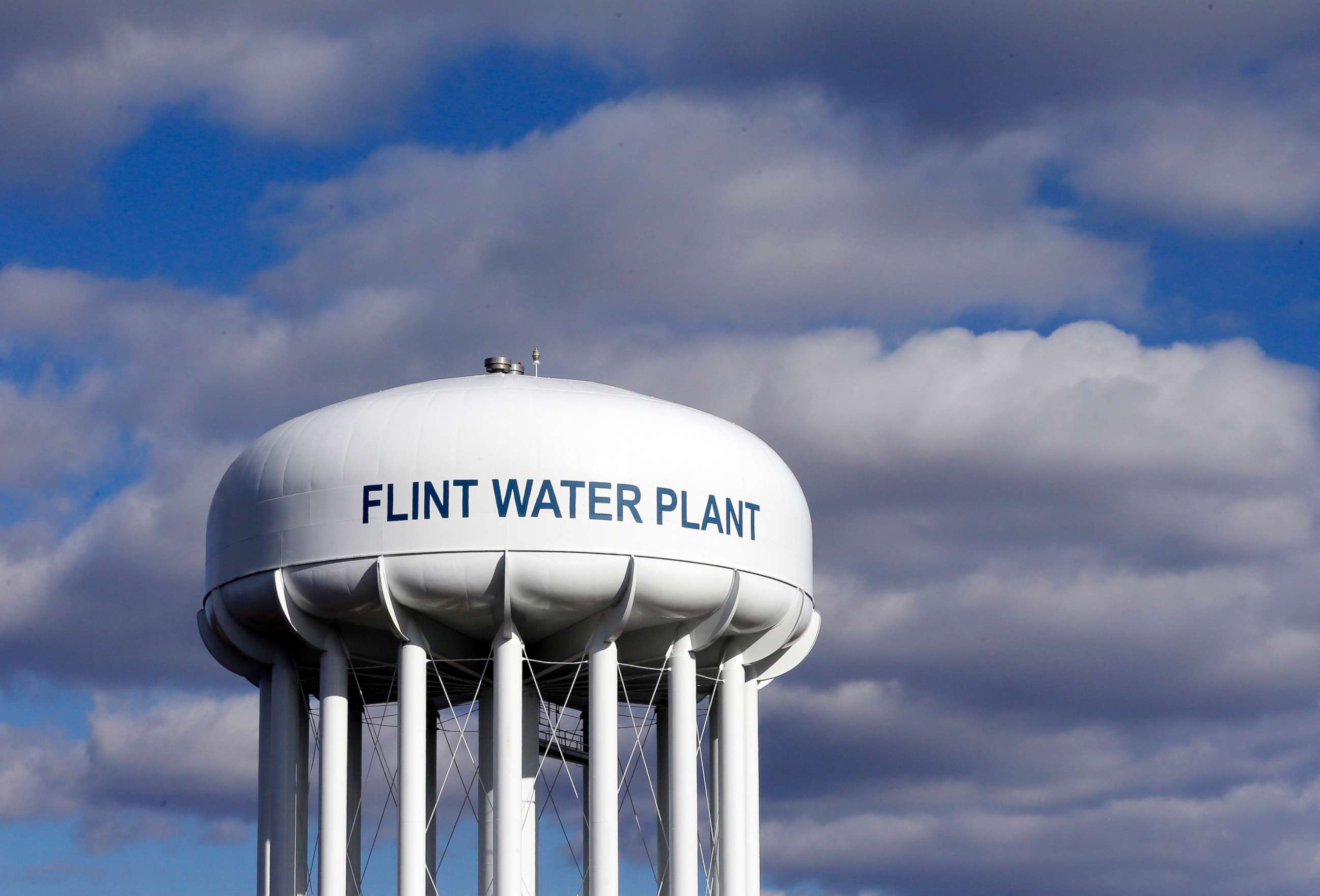Flint residents seek damages against government for water crisis
Years after the Flint water crisis started, residents are seeking compensation.
It has been four years since the Flint water crisis made national headlines and residents are fighting for compensation.
Attorneys for thousands of Flint residents made the case that a consolidated class action lawsuit brought by Flint residents against city, county and state authorities as well as private contractors should be allowed to continue on Wednesday.
Judge Judith Levy of the Eastern District of Michigan, held off on making a decision Wednesday, taking the day's oral arguments under advisory. A ruling is expected in the coming weeks.
The case opens the door for tens of thousands of Flint residents to potentially receive compensation after years of highly elevated levels of lead in the city’s water. In 2014, officials from Flint and the state government decided to use the Flint River as the city main water source, exposing residents to water contaminated with lead and bacteria.
In a class action lawsuit, residents allege that the city, state and private companies were negligent in not alerting residents to the lack of protection from lead seeping into their water supply. Lawyers for the residents also argue that residents have a right to clean water under federal environmental protection laws.
The complaint also alleges that racial discrimination played a role in authorities' insufficiently aggressive response to the potential health threat from exposure to the contaminated water.

Ted Leopold, a co-lead counsel for the plaintiffs, sees it as a case of discrimination.
"The overriding issue is that this terrible tragedy essentially poisoning an entire community of people would not have occurred in a less poverty-stricken area," he said.
In a break between sessions, Leopold expressed optimism that the case will proceed.
"We fully suspect that most of these claims, if not all of them will survive."
But the case could face some challenges because of existing laws that insulate public authorities from being held liable.
Peter Henning, a professor at Wayne State University Law School, said the court challenge may take several years in appeals but could falter because of procedure and laws governing responsibility.
"The procedure is more important than the underlying substance at this point," Henning said. "These are procedural claims that 'you can’t sue them' and 'I can’t be held responsible because I messed up.' The courts have been clear that just a mistake in judgment cannot hold the government liable. Even though the decisions were made, the law can take the government official off the hook."
The city and state’s decision led to a federal state of emergency to be declared less than two years later, after a 2015 study from the Environmental Protection Agency (EPA) found extremely high levels of lead contamination in the water supply.
The federal National Institutes of Health (NIH) associates lead poisoning in children with lower IQ, behavioral effects, delayed puberty and stunted growth. In adults, it can decrease cardiovascular and kidney function while also increasing blood pressure and hypertension.
Amid the elevated lead levels in its water, Flint suffered from an outbreak of Legionnaires’ disease that has killed 12 people and sickened at least 87.

Michigan ended bottled water distribution programs in April and declared the city’s water supply to have safe lead levels. But Anna Clark, a journalist and author of The Poisoned City, a book chronicling the Flint water crisis, said residents are wary of drinking the water if other contaminants are in there.
"A lot of folks in the community are not trusting the water from the taps. They feel they should have filtered water and bottled water," Clark said. "Lead isn’t the only thing people are concerned about. The state declared the water safe with lead but there’s also bacterial concerns and other issues about the water."




